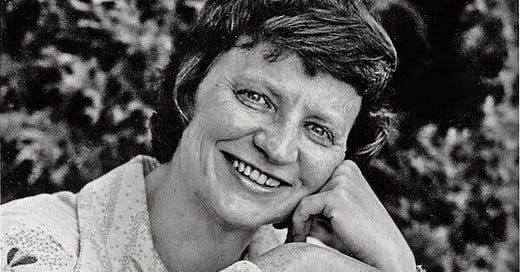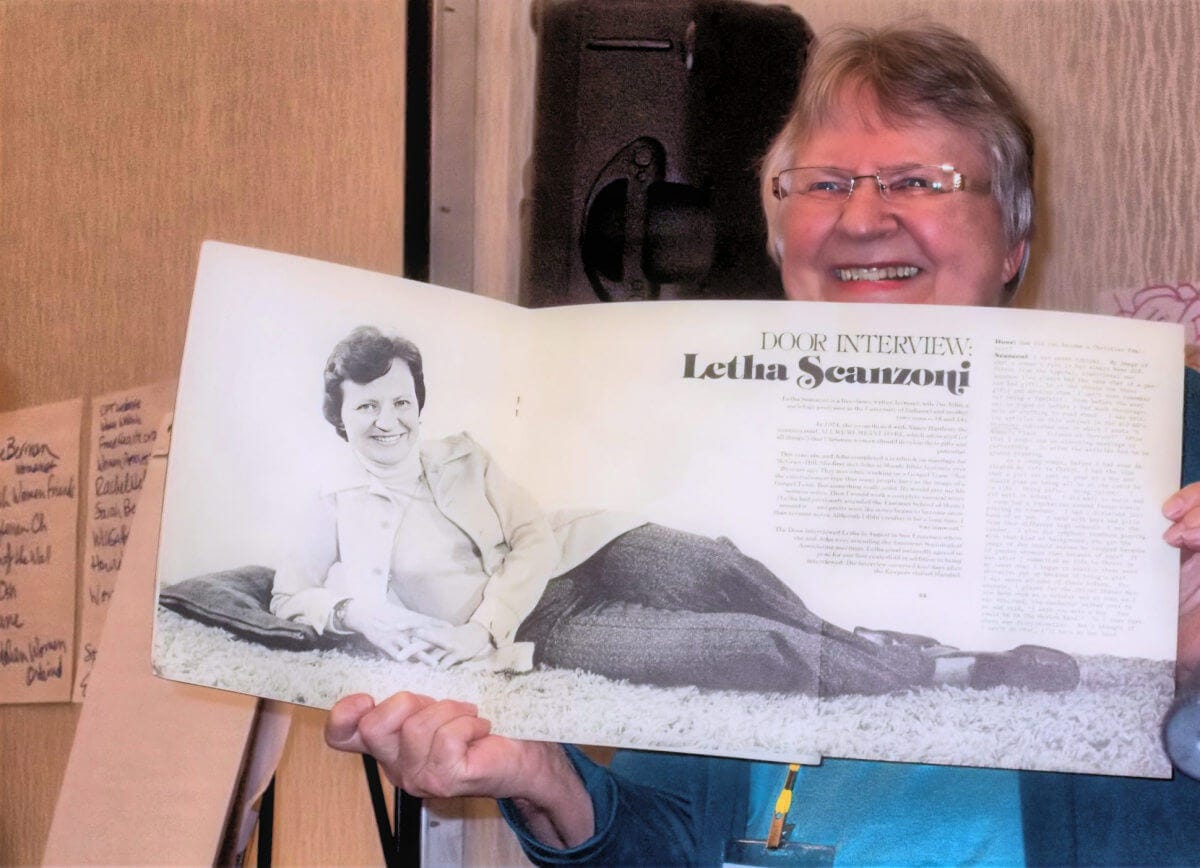An evangelical prophet who told the truth about the Bible’s view of women
Like most prophets, Letha Dawson Scanzoni likely had no idea how many people were liberated by her truth-telling.
Reading through The New York Times on Friday, I got to the obituary section and saw the name and picture of someone I hadn’t seen for a very long time. The title of the piece was “Letha Dawson Scanzoni, 88, Pioneer of Evangelical Feminism, Is Dead.”
Pioneers are those who forge new pathways, lead us into deeper places and call for new ideas. The dictionary says pioneers are “the first to explore or settle a new country; or a person who is among the first to research and develop a new area of knowledge or activity.” The NYT obituary begins by saying that Letha Scanzoni was “an evangelical author who argued gently but persuasively that the Bible considered women equal to men, inspiring a wave of Christian feminism and, perhaps inevitably, a backlash against it.”
Maybe a better word for us to use for people like Letha Scanzoni is prophets, which is deeper and more biblical than pioneers. Prophets tell the truth, not just as they see it, but as they believe that God sees it. And by doing so, they are often not welcomed, accepted, or loved; but rejected and attacked.
Letha Scanzoni falls in the category of the prophets, biblically speaking the truth. But despite the many attacks and rejections she would receive in the evangelical world, she kept her faith and continued to be a deep and devout follower of Jesus Christ in a good and faithful life. And like most prophets, she likely had no idea how many people were liberated by her truth-telling.
Way back in the early 1970s some of us were trying to explore, develop, and call for a new kind of evangelicalism. Lisa Scanzoni was one of our younger generation who called for something that seemed impossible back then – Evangelical Feminism – which was the name of a new organization that she helped to found. In the evangelical world men were always in charge, women submitted to their husbands, and were offered no leadership or authority in the church.
In my own family and church, my mother, Phyllis Wallis, was clearly perceived as a pastor by most of the people in our church, right alongside her husband James Wallis, but in the evangelical Plymouth Brethren churches, women were not allowed to hold positions of authority.
But I watched my dad and mom always talking about issues and people in the church, and saw how she took care of so many people and their problems, even having people live with us with no other place to go. The “elders meetings” always took place at our kitchen table, but Phyllis Wallis didn’t sit there until after the meeting when she and my dad talked about everything at our family table. My mom’s memorial service drew the largest crowd of men and women and children in the history of Dunning Park Chapel.
Letha Scanzoni was also thought to be a faithful wife and mother, supporting her husband’s academic career, and mostly focused on taking care of her children. But she was also a freelance writer and one who began to research what the Bible really said about the role of women in the Bible, in their families, and even in the church. She saw what was really going on, and decided to study the Bible and church history and became one of the first evangelical women who had something different to say about all of that.
As Daniel Silliman of Christianity Today noted, Letha also had a good sense of humor, once posing as a “centerfold” for the satirical magazine Wittenburg Door.
Historically, a number of evangelical women had been leaders and preachers in the earlier revival and abolitionist movements, like the Grimke sisters, Sarah and Angelina, in the 19th century (look them up).
Letha concluded that the Bible supports women and their leadership. Instead of limiting women, Letha saw the Bible liberating them, especially Jesus and the way he treated women. Even Paul, whose teachings in some cultural situations conformed to patriarchal traditions, shared leadership with many women in the early church communities. And, as Paul writes in Galatians 3:28: “There is no longer Jew or Greek, there is no longer slave or free, there is no longer male or female: for all of you are one in Christ Jesus.” The witness of Jesus, Paul’s theology, and the history of the early church were all clear: the equality of men and women is a fundamental Christian principle.
Letha began writing for an evangelical magazine called Eternity, which was a publication more open to social concerns. She met an editor there named Nancy Hardesty and, eventually, they together wrote a book called All We Are Meant to Be: A Biblical Approach to Women’s Liberation.
But the incredible backlash to Letha Scanzoni, Nancy Hardesty, and many others who were part of our new evangelical generation was enormous, and costly to evangelical women like them. The Times obituary writer Penelope Green spoke with Kristin Kobes Du Mez, a historian at Calvin College, who said:
“Conservatives doubled down in their opposition to women’s rights, making male headship and female submission defining features of modern evangelicalism. Letha was such a threat because she presented her case for feminism in evangelical terms, making it hard for critics to depict feminism as a wholly secular movement intent on undermining traditional Christianity.”
Letha’s NYT obituary ends this way:
In 2006, the magazine Christianity Today included “All We’re Meant to Be” in its roundup of 50 books that have shaped evangelicals, along with touchstones like “Mere Christianity,” by C.S. Lewis, and Madeleine L’Engle’s “A Wrinkle in Time.”
“For better or for worse,” the editors wrote, “no evangelical marriage or institution has been able to ignore the ideas in this book.”
God bless you Letha, as you blessed so many of us. It was so great to see your picture again, to remember your words, and be so grateful for your life of faithfulness.
By the way, my new book, “False White Gospel: Rejecting Christian Nationalism, Reclaiming True Faith, and Refounding Democracy,” is available for preorder. Please consider ordering a copy.







Thank you for highlighting such an amazing woman. So many of us who are women in Evangelical churches stand on her shoulders.
I appreciate the reminder of those, who walked the righteous path before us and advocated justice for all. We still haven't achieved equality for women let alone other dividing lines so prevalent in our society today. Thank you